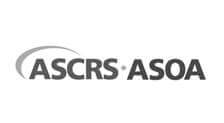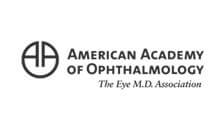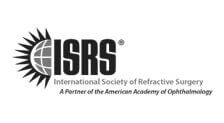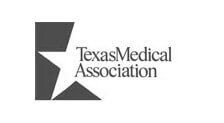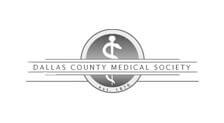Are you worried that you could have cataracts? You’re not alone.
Millions of Americans currently live with cataracts, and many more will develop them by the age of 65. If you do have cataracts, you may wonder if there are treatment options. At Carter Eye Center in Dallas, Dr. Carter performs laser cataract surgery in his Dallas-Fort Worth vision center, helping patients see clearly.
What is a Cataract?
If you have a cataract, it’s due to proteins in the lens of the eye clumping together, causing blurry vision. These proteins can take a long time to clump together, but cataracts will eventually lead to vision loss, along with other symptoms.
Cataracts commonly occur as a result of aging. You may be more prone to developing cataracts if they run in your family, if you spend a lot of time in the sun without protecting your eyes, or if you have certain medical conditions, such as diabetes.
There is no way to prevent cataract development, as they are an almost inevitable part of the aging process.
What Are the Signs of Having a Cataract?

Several signs may indicate that you have cataracts. They include:
- Blurry or foggy vision like you’re looking through a dirty window
- Needing more light to complete tasks
- Experiencing double vision
- Seeing things that are white as brown or muddy in color instead
- Seeing colors as more muted than they should be
- Needing new eyeglasses or contact lens prescriptions frequently
- Becoming more sensitive to light
- Finding it more difficult to drive at night
- Seeing halos, glare, or starbursts around light
If you’ve experienced these signs, let your eye doctor know. Although they are often signs of cataracts, it’s essential to find out for sure. You could have another more severe eye condition, so it’s crucial to have any eye issues checked out by your eye doctor as soon as possible.
Who is a Good Candidate for Cataract Surgery?
If you’ve been diagnosed with cataracts and are in good health, you’re probably a cataract surgery candidate. Although you may have cataracts, that doesn’t always mean that you need to have cataract surgery at our Dallas-Fort Worth eye clinic right away.
Unless your cataracts make it impossible to live your life and complete daily activities, you may not need to have cataract surgery yet. This includes things like cooking, getting around your home, and doing laundry.
If you can efficiently complete these, you may not need to have cataract surgery until later. If you find it challenging to get around, have injured yourself, or fall because you can’t see, you may want to think about having cataract surgery.
Your eye doctor can speak with you more about your lifestyle and other medical conditions to see if cataract surgery is the next right step to take.
Cataract Surgery is Done in Three Simple Steps
- A small incision is made on the surface of the eye
- High energy sound waves are used to break up the cloudy natural lens
- The cloudy lens is removed and an artificial Intraocular Lens (IOL) is put in its place
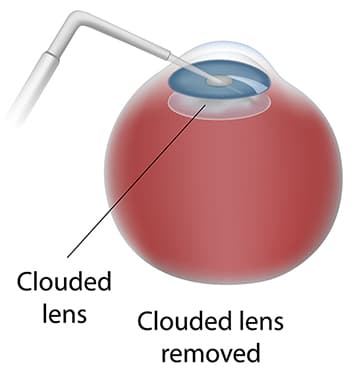
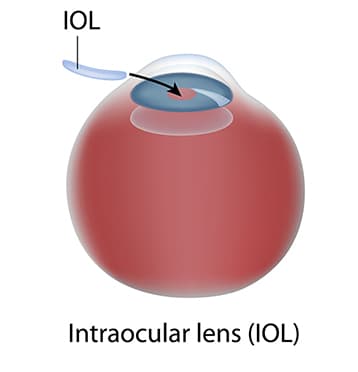
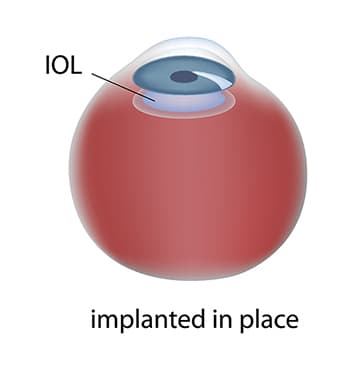
What is the Difference Between Traditional Cataract Surgery and Laser-Assisted Cataract Surgery?
There are two types of cataract surgery: traditional cataract surgery and laser-assisted cataract surgery. Both types are quick, painless, and not significant surgical procedures since you’re awake during both. Carter Eye Center only performs laser-assisted cataract surgery on our cataract patients.
Traditional cataract surgery is a medical procedure that’s known for being very safe. If you don’t mind wearing glasses after cataract surgery, it’s a good choice. For those with Medicare, the procedure is covered in full.
Laser-assisted cataract surgery has a lot of advantages when comparing it to traditional cataract surgery. This form of laser-assisted eye surgery at our Dallas-Fort Worth clinic is more accurate than conventional cataract surgery.
Increased accuracy means the procedure is safer. Besides being more accurate and precise, it also has faster healing times, which means you can get back to your routine faster.
Who is a Good Candidate for Laser-Assisted Cataract Surgery?
The only way to know for sure if you’re a good candidate for laser-assisted cataract surgery is to schedule a cataract screening at Carter Eye Center in Dallas, TX. But an excellent laser-assisted cataract surgery candidate will also have other common characteristics.
If you need a toric lens, meaning you have astigmatism, laser-assisted cataract surgery is right for you. Toric lenses are the only IOL designed only for people with astigmatism.
To have these special intraocular lenses implanted, you need to have laser-assisted cataract surgery for the best possible results. If you want to have a premium IOL, you’ll also need to choose laser-assisted cataract surgery. This is due to the increased level of accuracy and precision that laser-assisted cataract surgery provides.
How is Laser-Assisted Cataract Surgery Performed?
One of the reasons why laser-assisted cataract surgery at our Dallas-Fort Worth vision center is such a successful procedure is the laser used. Laser-assisted cataract surgery uses the Lensar laser.
It’s the only femtosecond laser built specifically for use with refractive cataract surgery. Using the Lensar laser provides surgeons with pre-programmed preferences.
There’s also a graphical user interface and arcuate incision planning at the laser, among other innovations. Laser-assisted cataract surgery is an outpatient procedure, meaning you can go home the same day.
While it only takes around 20 minutes to perform, you’ll be at Carter Eye Center for anywhere between 2-3 hours in total. Before laser-assisted cataract surgery begins, you’ll receive numbing eye drops to make sure you won’t feel any pain.
If you’re nervous, you can ask for a sedative to relax you and help you calm down. An eye holder called a speculum will help keep your eyelid open, so you don’t blink during the surgery.
Dr. Harvey Carter will then map the surface of your eye with a camera. He will then use the Lensar laser to create an incision in your cornea and break up the lens into pieces. After breaking up the lens pieces, they are gently removed using suction, followed by placing your new intraocular lens into your eye.
You shouldn’t feel any pain during the procedure because of the numbing eye drops you receive before laser-assisted cataract surgery begins. If you’re nervous that you’re going to blink, don’t worry! The speculum will prevent you from closing your eye during the surgery.
What is the Recovery Process Like After Having Laser-Assisted Cataract Surgery At Our Dallas-Fort Worth Clinic?
After laser-assisted cataract surgery, you will not be able to drive yourself home. Make sure you have a friend or a trusted family member that can get you home safely.
You may want to have them on hand for the next few days if you need to go anywhere. Don’t drive until your eye doctor has cleared you.
Most patients can drive a week after the procedure, but this depends on the individual. The best thing that you can do once you get home is rest. Don’t take part in any strenuous exercise for at least a week, including bending or lifting.
Your vision may be blurry or fuzzy in the days after laser-assisted eye surgery at our Dallas-Fort Worth clinic. This is normal and should go away on its own after a few days.
You’ll need to see your eye doctor for a follow-up appointment a day or two after your procedure. The follow-up appointment will ensure that your eye has started to heal correctly and that there are no complications.
You could experience soreness or itchiness in your eye for a couple of days once you’ve undergone the procedure. You might need to wear an eyepatch during the day or a protective shield while sleeping.
Eventually, with clearance from your doctor, you can return to your normal activities. It could take up to three months to fully recover once you’ve had laser-assisted cataract surgery.
Cataract Surgery FAQ’s
Is laser-assisted cataract surgery expensive?
Unlike traditional cataract surgery, laser-assisted cataract surgery is not usually covered by Medicare. Because of this, the cost of the procedure is often paid out of pocket. The cost of this depends on different factors, so check with your insurance about your coverage.
Our commitment to CarterCares means that we will work diligently to ensure that we create the ideal package for you that balances your needs to give you everything you’ve ever wanted out of cataract surgery at a price-point that is comfortable for you.
If you need help with financing your advanced procedure, we’re happy to help. CareCredit® is a fantastic option that we suggest to anyone looking for a bit of help covering the total cost of their procedure. CareCredit works like a traditional credit card while offering no interest on purchases over $200 when monthly payments are met (restrictions will be discussed in more detail during your evaluation).
Are you wondering if laser-assisted cataract surgery at our Dallas-Fort Worth eye center could be right for you? Find out more about this procedure by scheduling a cataract screening at Carter Eye Center in Dallas, TX, now! Don’t let cataracts stand in your way of seeing clearly for another minute!
Schedule a Cataract Surgery Consultation online, or call us at 214-750-1962.






